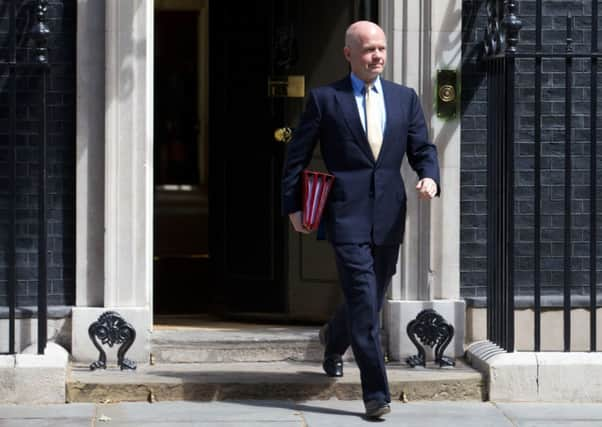Leaders: UK military has no role in Iraq


And yet the crisis in the region leaves the US and UK little choice.
The images of Isis fighters massacring Shiite captives, brought to us directly through the medium of social media, are shocking – indeed, that is their intention; horror is, after all, a weapon of war.
Advertisement
Hide AdAdvertisement
Hide AdThere will be more such images, and with them will come increasing calls for the UK to accept its responsibility for Iraq’s grim predicament and to help do something to alleviate it.
That we, the UK, are in some measure culpable in helping bring about the grisly scenario being played out in Iraq cannot be denied. Of course, other factors have played their part – notably the wave of sectarian conflict that has swept across the Middle East as part of the Arab Spring. But, ultimately, in supporting the 2003 invasion, we helped to light the fuse.
Pressure for the UK to re- engage militarily in Iraq must, however, be resisted. There is no public or political appetite for this. Two things are clear about the current situation in Iraq, learning the lessons of recent conflict in the region.
The first is that, like in all modern warfare, aerial superiority is the key to victory. This was demonstrated in the UK and US air support in the overthrow of Colonel Gaddafi in Libya, and in the way the absence of this support for rebels in Syria has allowed president Bashar al-Assad to survive.
The second is that air supremacy on its own cannot conclusively beat an insurgency. Boots on the ground are required – but, crucially, those boots do not need to be US or UK boots. The boots can be Iraqi boots – once the Baghdad military forces regroup following the recent embarrassing defections that ceded so much ground to the insurgents.
US air support looks like being the only way for the Iraqi government to regain control, but it carries significant risks. With Sunni-Shia tensions already high – notably in the tinderbox that is Lebanon, where Middle East conflagrations have a habit of converging – how would other players in the region react to the US effectively becoming an instrument of Shia military might? It does not auger well.
US president Barack Obama is currently weighing up his options. He has already approved extra troops to secure the US embassy and Baghdad airport, and calls are mounting in some quarters in America for a more strategic military deployment to help repel the rebels.
If he can win domestic support for drone strikes and air support, then so be it. The likelihood is it will be drone strikes. But the chances of similar support from the British public or from MPs is nil. Consequently, there can be no military involvement from Britain on this occasion.
Parents can count on Angiolini
Advertisement
Hide AdAdvertisement
Hide AdIT IS heartening indeed that the official response to the Mortonhall baby ashes scandal has – ultimately, at least – been equal to the enormity of the loss and hurt felt by the many parents involved.
Yesterday’s report by Lord Bonomy, commissioned by Scottish ministers, made clear that no parent with questions about what happened to the remains of their dead child will be denied an answer about what is known about their specific circumstances.
This is an enormous undertaking. But it is the right thing to do.
In Holyrood yesterday, health minister Michael Matheson said that “in many cases, in the past, the interests of the baby and the bereaved family have not always been put first”.
These few simple and understated words contain a world of heartache.
The loss of a child is a burden carried by a parent in perpetuity. But there is some consolation, however inadequate, to be found in knowing that child’s remains were treated with dignity, and in knowing where those remains lie.
Being denied even that healing salve has added to an already unbearable burden for thousands of parents across Scotland.
The Scottish Government is to be congratulated for commissioning this report and for promising action on its 64 recommendations.
Advertisement
Hide AdAdvertisement
Hide AdIt has also picked the right person to see this process through, in former Lord Advocate Dame Elish Angiolini.
When she was Scotland’s top prosecutor, Dame Elish won wide admiration for ensuring the law met the needs of society, and not the other way round. If anyone can ensure every parent gets the answers they need, it is her.